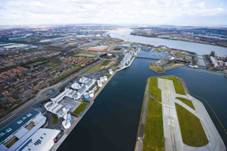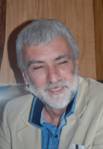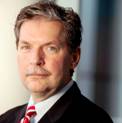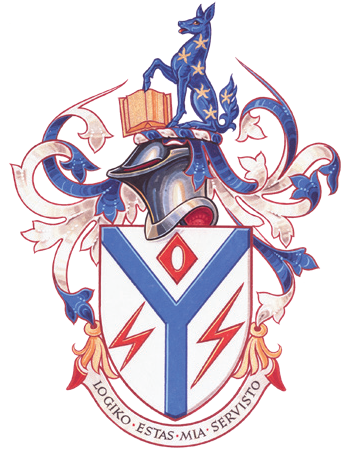Improving Software for Society
News | Blog Post : IAP Symposium – Museum in Docklands – Friday 24th April 2009
IAP Symposium – Museum in Docklands – Friday 24th April 2009
 This year’s Spring meeting of the IAP will be based at the Museum in Docklands, close to Canary Wharf. Since its regeneration Docklands has become a hub for high-tech business. It contributes a major slice of Britain’s wealth, and provides employment for a lot of IAP members.
Traditionally the main gateway for overseas trade, Docklands is now the hub of a vast global trading operation. But this traditional business has been augmented by international media and financial sectors that have removed from the City.
The Museum celebrates Docklands’ historic roots. Occupying a converted warehouse, its mix of galleries and function rooms will provide a comfortable and interesting venue for the IAP. But our speakers will talk about modern developments that have transformed the area and made it into a world-class centre for the media, banking, and trade.
Docklands is a short ride from the City of London. For those who have not travelled the Docklands Light Railway before it is an awesome experience. The grand scale of the buildings and the space-age layout are totally unexpected in London.
This year’s Spring meeting of the IAP will be based at the Museum in Docklands, close to Canary Wharf. Since its regeneration Docklands has become a hub for high-tech business. It contributes a major slice of Britain’s wealth, and provides employment for a lot of IAP members.
Traditionally the main gateway for overseas trade, Docklands is now the hub of a vast global trading operation. But this traditional business has been augmented by international media and financial sectors that have removed from the City.
The Museum celebrates Docklands’ historic roots. Occupying a converted warehouse, its mix of galleries and function rooms will provide a comfortable and interesting venue for the IAP. But our speakers will talk about modern developments that have transformed the area and made it into a world-class centre for the media, banking, and trade.
Docklands is a short ride from the City of London. For those who have not travelled the Docklands Light Railway before it is an awesome experience. The grand scale of the buildings and the space-age layout are totally unexpected in London.
Cost (including VAT)
| Members and their guests | £92.00 |
| Non members | £172.50 |
| 10.00 | Open for registration (with coffee and biscuits) |
| 10.35 | Director General’s opening remarks |
| 10.40 | Peter Green (introduced by Tom Hohenberg) |
| 11.20 | Dominic Palmer-Brown (introduced by Robin Jones) |
| 12.00 | Comfort break |
| 12.10 | Jim Goulding (introduced by Peter Ashby) |
| 12.50 | Ed Gibson (introduced by Ian Walker) |
| 13.30 | Lunch |
| 15.00 | Tour of the Museum |
 Peter Green FIAP The Newspaper Business – Where to now?
Peter is a Fellow of the Institution and currently Technical Director of the Telegraph Newspaper Group. He has 25 years’ experience in the publishing industry; past assignments included positions as Operations Director of The International Herald Tribune and The European, and IT Manager for the Press Association. Innovations which Peter has pioneered during his time at the Telegraph have since been copied by newspapers all over the world.
The Telegraph was one of the first major titles to move to Docklands. Since then both the technology and the business environment have been transformed by the rise of electronic publishing. Peter will review what has already happened, and how he sees the industry developing in the future.
Peter Green FIAP The Newspaper Business – Where to now?
Peter is a Fellow of the Institution and currently Technical Director of the Telegraph Newspaper Group. He has 25 years’ experience in the publishing industry; past assignments included positions as Operations Director of The International Herald Tribune and The European, and IT Manager for the Press Association. Innovations which Peter has pioneered during his time at the Telegraph have since been copied by newspapers all over the world.
The Telegraph was one of the first major titles to move to Docklands. Since then both the technology and the business environment have been transformed by the rise of electronic publishing. Peter will review what has already happened, and how he sees the industry developing in the future.
 Dominic Palmer-Brown UEL – Designing Britain’s future in IT
Dominic is Associate Dean of Computing and Technology and Professor of Neural Computing at the University of East London. He studied Electrical and Electronic Engineering and has since completed an MSc in Intelligent Systems and a PhD in Neural Networks. He has worked extensively in industry. His research work includes virtual learning environments, intelligent systems and neural networks. He is widely published
The School of Computing, Information Technology and Engineering at the University of East London was relocated to its award-winning Docklands campus in 2007 (see photo). Dominic will describe the campus and its new facilities, addressing the effect this has had on teaching, and the University’s interaction with industry.
Dominic Palmer-Brown UEL – Designing Britain’s future in IT
Dominic is Associate Dean of Computing and Technology and Professor of Neural Computing at the University of East London. He studied Electrical and Electronic Engineering and has since completed an MSc in Intelligent Systems and a PhD in Neural Networks. He has worked extensively in industry. His research work includes virtual learning environments, intelligent systems and neural networks. He is widely published
The School of Computing, Information Technology and Engineering at the University of East London was relocated to its award-winning Docklands campus in 2007 (see photo). Dominic will describe the campus and its new facilities, addressing the effect this has had on teaching, and the University’s interaction with industry.
 Jim Goulding FIAP TV news – from manual to automatic.
Once a producer/director on News at Ten, Jim now runs his own production company specializing in documentaries. He has worked for all the major TV companies, including the BBC, Thames TV and Channel 4, on a wide range of programming. Jim has shot pop videos in Los Angeles, corporate and training films throughout Europe, and was in at the very beginning of Channel 4 TV. He and his partner have shown their work in 28 countries
Jim will survey the last thirty years in TV newsrooms. Early cameras were so heavy that it took two people to lift them. Studios were run by crews of a dozen people. Nowadays whole feature films can be cut on desk top computers bought off the shelf, and News studios are run by crews of two or three. Computers can now control the whole of a station’s news output. 24 hour TV news can be truly breaking news.
Jim Goulding FIAP TV news – from manual to automatic.
Once a producer/director on News at Ten, Jim now runs his own production company specializing in documentaries. He has worked for all the major TV companies, including the BBC, Thames TV and Channel 4, on a wide range of programming. Jim has shot pop videos in Los Angeles, corporate and training films throughout Europe, and was in at the very beginning of Channel 4 TV. He and his partner have shown their work in 28 countries
Jim will survey the last thirty years in TV newsrooms. Early cameras were so heavy that it took two people to lift them. Studios were run by crews of a dozen people. Nowadays whole feature films can be cut on desk top computers bought off the shelf, and News studios are run by crews of two or three. Computers can now control the whole of a station’s news output. 24 hour TV news can be truly breaking news.
 Ed Gibson The Computing ‘Environment’: It’s more than Binary Code – It’s About Criminals!!
Ed Gibson’s primary role as Microsoft’s Chief Security Adviser is to advise customers in the UK how best to respond to the current security environment, and how to improve their security while using Microsoft’s products. Twenty years as a Special Agent with the FBI have uniquely qualified Ed for this role. From 2000 – 2005 he was assigned to the American Embassy in London. During that period he was responsible for all the FBI’s hi-tech programmes to combat Internet extortion, blackmail, cyber terrorism and intellectual property theft.
Despite the mutating threats of cyber attacks, online extortion and spam, a well-structured security strategy can safeguard your business and ensure that such risks are controlled. It can also reassure customers. Criminals will attempt to steal everything you hold dear in the online world, by extortion, threats or intimidation. Yet, because the internet is not territorially or jurisdictionally bound, the normal responses are often ineffective. But there are solutions . . . and sometimes they are free!
Ed Gibson The Computing ‘Environment’: It’s more than Binary Code – It’s About Criminals!!
Ed Gibson’s primary role as Microsoft’s Chief Security Adviser is to advise customers in the UK how best to respond to the current security environment, and how to improve their security while using Microsoft’s products. Twenty years as a Special Agent with the FBI have uniquely qualified Ed for this role. From 2000 – 2005 he was assigned to the American Embassy in London. During that period he was responsible for all the FBI’s hi-tech programmes to combat Internet extortion, blackmail, cyber terrorism and intellectual property theft.
Despite the mutating threats of cyber attacks, online extortion and spam, a well-structured security strategy can safeguard your business and ensure that such risks are controlled. It can also reassure customers. Criminals will attempt to steal everything you hold dear in the online world, by extortion, threats or intimidation. Yet, because the internet is not territorially or jurisdictionally bound, the normal responses are often ineffective. But there are solutions . . . and sometimes they are free! 




